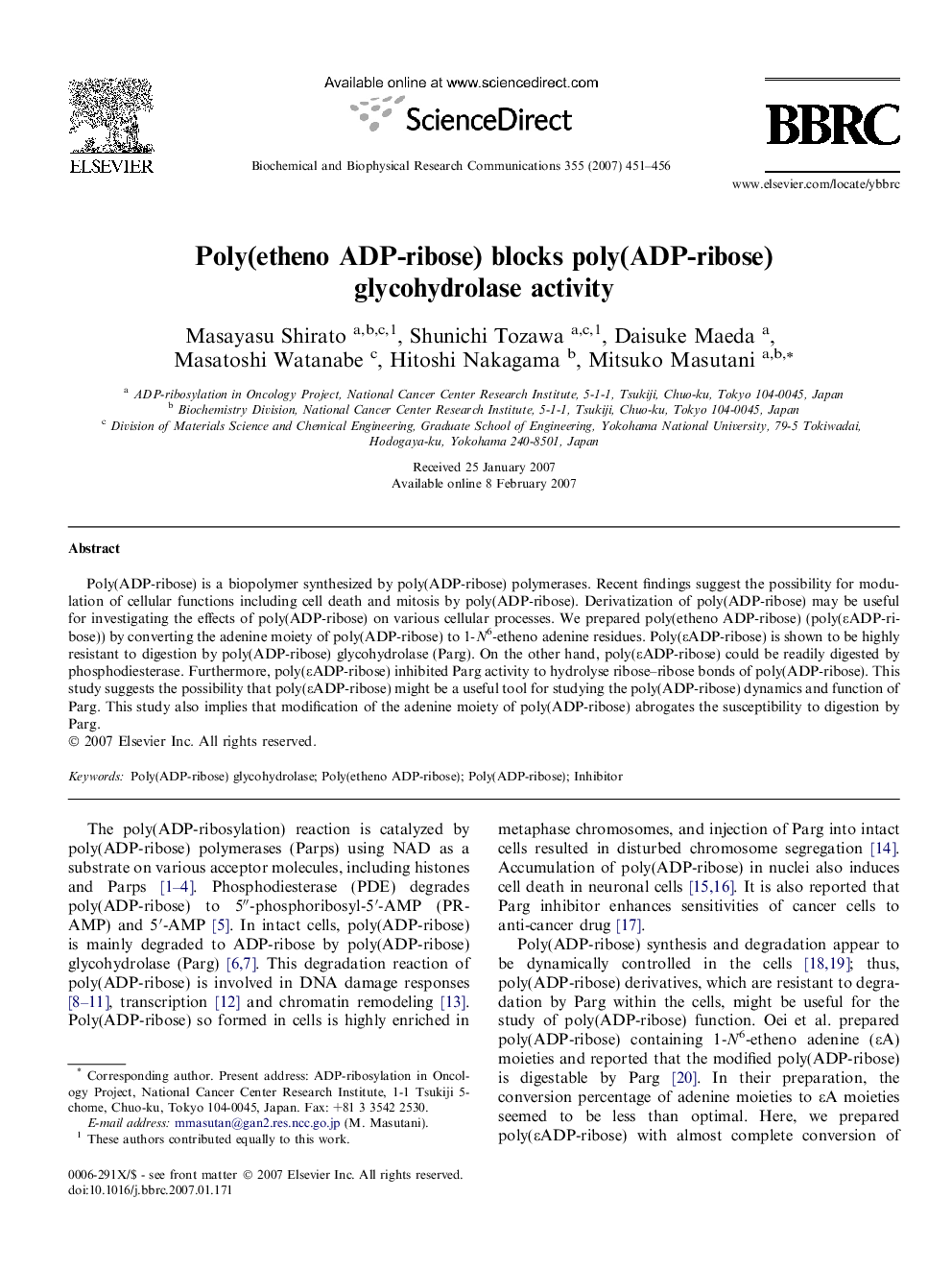| Article ID | Journal | Published Year | Pages | File Type |
|---|---|---|---|---|
| 1937441 | Biochemical and Biophysical Research Communications | 2007 | 6 Pages |
Poly(ADP-ribose) is a biopolymer synthesized by poly(ADP-ribose) polymerases. Recent findings suggest the possibility for modulation of cellular functions including cell death and mitosis by poly(ADP-ribose). Derivatization of poly(ADP-ribose) may be useful for investigating the effects of poly(ADP-ribose) on various cellular processes. We prepared poly(etheno ADP-ribose) (poly(εADP-ribose)) by converting the adenine moiety of poly(ADP-ribose) to 1-N6-etheno adenine residues. Poly(εADP-ribose) is shown to be highly resistant to digestion by poly(ADP-ribose) glycohydrolase (Parg). On the other hand, poly(εADP-ribose) could be readily digested by phosphodiesterase. Furthermore, poly(εADP-ribose) inhibited Parg activity to hydrolyse ribose–ribose bonds of poly(ADP-ribose). This study suggests the possibility that poly(εADP-ribose) might be a useful tool for studying the poly(ADP-ribose) dynamics and function of Parg. This study also implies that modification of the adenine moiety of poly(ADP-ribose) abrogates the susceptibility to digestion by Parg.
